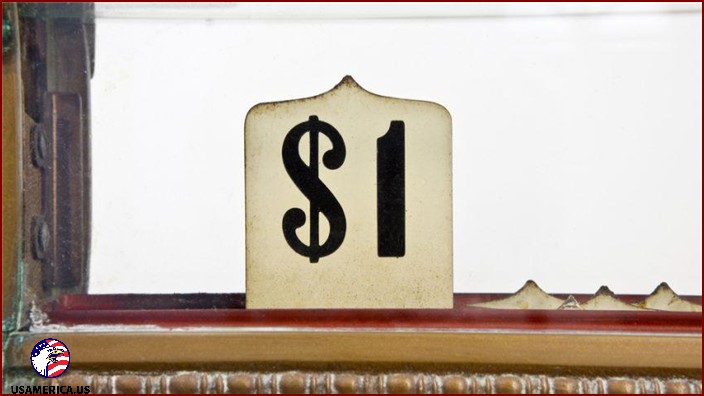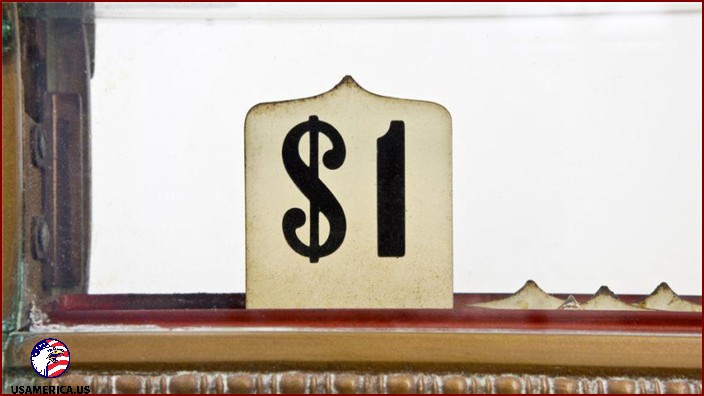20 Tips for Handling Cash that Every Business Owner Should Know
Today, I want to talk to you about something very important: handling cash. As a business owner, it’s crucial to know how to manage your money properly. So, sit back, relax, and let’s dive into these 20 cash handling best practices every business should follow.
1. Keep it safe: Make sure to store your cash in a secure place, like a safe or a locked cash register.
2. Count it carefully: When counting cash, take your time and double-check to avoid any errors or mistakes.
3. Separate denominations: Organize your bills by their values to make it easier for you to count and manage.
4. Check for counterfeits: Look for security features on bills, such as watermarks and special inks, to identify counterfeit money.
5. Educate your team: Teach your employees about cash handling procedures and how to spot counterfeit bills.
6. Limit access: Only trusted employees should have access to cash and be responsible for handling it.
7. Use a cash log: Keep a record of all cash transactions to track your income and expenses accurately.
8. Regularly reconcile: Review your cash register tapes and receipts to ensure they match the amount of cash on hand.
9. Deposit frequently: Avoid keeping large amounts of cash on-site by depositing it in a bank regularly.
10. Secure transport: Use a secure method, like a drop-safe or armored car service, to transport cash to the bank.
11. Be vigilant: Keep an eye out for any suspicious activities or behavior that may indicate attempted theft.
12. Train for emergencies: Prepare your team for potential robberies or emergencies by having a plan in place.
13. Use surveillance: Install security cameras in strategic locations to deter theft and assist in investigations if needed.
14. Make it discreet: Avoid displaying large amounts of cash openly to reduce the risk of attracting unwanted attention.
15. Get insurance: Consider getting cash handling insurance to protect your business in case of loss or theft.
16. Encourage electronic payments: Promote cashless transactions to minimize the amount of cash you handle.
17. Conduct audits: Periodically review your cash handling procedures to identify any areas that need improvement.
18. Stay organized: Keep your cash area clean and well-organized to avoid confusion or misplaced funds.
19. Train your employees: Provide thorough training to your team on how to handle cash properly.
20. Trust your instincts: If something doesn’t feel right, trust your gut and take necessary precautions.
By following these cash handling best practices, you’ll be on the right track to managing your money securely and efficiently. Remember, the more you know, the better you can protect your business and its finances. So, let’s keep these tips in mind and ensure a smooth cash handling process for your business. Happy managing!

If you’re a small business that deals with cash, like a food truck or a salon, it’s important to protect yourself from mistakes and theft. So, here are 20 best practices for handling cash that you should follow to make sure everything goes smoothly.
Contents
- 1 Best Practices for Handling Cash
- 1.1 Get Rid of Slush Funds
- 1.2 Take Differences Seriously
- 1.3 Create a Consistent Process
- 1.4 Understand IRS Requirements
- 1.5 Create a Petty Cash Account
- 1.6 Issuing Invoices
- 1.7 Avoid Mixing Up Your Accounts
- 1.8 Create a Cash Handling Schedule
- 1.9 Invest in Cash Technology
- 1.10 Limit the Number of Employees Handling Cash
- 1.11 Don’t Share Cash Drawers
- 1.12 Avoid Rounding Off Numbers
- 1.13 Utilize Accounting Technology
- 1.14 Focus on Counting
- 1.15 Consistency is Key
- 1.16 Use a Deposit Template
- 1.17 Keep it Private
Best Practices for Handling Cash
Get Rid of Slush Funds
Sometimes, cashiers in small retail stores are expected to cover shortages with their own money. This can lead to a slush fund where employees pool their resources. It might seem like a solution, but it actually hides the real reason why the cash drawer is short. If you use this system, it’s best to get rid of it.
Take Differences Seriously
When I’m running a diner with a busy lunch crowd, being a few dollars short every now and then might not seem like a big deal at first. But if I ignore these discrepancies, I could be ignoring a bigger problem. It’s important to keep track of all losses and overages to uncover any intentional wrongdoing.
Create a Consistent Process
It’s crucial for everyone on my small fleet of food trucks to be on the same page when it comes to handling cash. By establishing a set of rules that apply to everyone, we can eliminate any confusion and uncertainty for employees who work independently.
Understand IRS Requirements
I need to familiarize myself with the cash transaction regulations set by the government. It’s my responsibility to do the necessary research and ensure I comply with all obligations. For instance, I must handle large cash payments over $10,000 in a specific manner. If I have any doubts, I should consult the IRS or my accountant.
Create a Petty Cash Account
It’s really helpful to have some extra money on hand to give change to customers at your laundromat. This gives you a great advantage over other businesses. To keep things organized, I suggest opening a business checking account to keep track of your funds.
Issuing Invoices
When your regular clients want to pay with cash at your nail salon, it’s no problem at all. You just need to give them an invoice to keep things official.
Avoid Mixing Up Your Accounts
It’s important to record and store all the cash your business handles separately. You should also make sure to follow proper bookkeeping procedures. For example, don’t use customer cash payments to refill your petty cash.
Create a Cash Handling Schedule
If you have a small retail store at the local mall, your days might get really busy. That’s why it’s important to have a set schedule for depositing, counting, and balancing your cash. Make sure to plan this routine around your busiest times of day.
When it comes to avoiding theft and lost money, it’s important to keep a limit on how much cash you have in the registers and on hand. Keep it simple by setting an upper ceiling for the amount you keep on site.
Invest in Cash Technology
Using smart safes can make handling cash more efficient. These safes can track cash transactions and even schedule pickups. It’s also important for cash businesses, like smaller restaurants, to have counterfeit detection technology.
Limit the Number of Employees Handling Cash
To effectively manage cash, assign the responsibility to supervisors. They should be in charge of reviewing transactions and other tasks, such as recording receipts.
When it comes to sharing a cash drawer in restaurants and retail stores, mistakes can happen. It might seem convenient for a waiter to cover someone on break, but there’s a lack of accountability in that setup. That’s why it’s important for everyone to have their own assigned cash drawer.
Avoid Rounding Off Numbers
The term dollars and cents exists for a reason. David S. Peters, a restaurant expert, advises against rounding off the nightly deposit by leaving out coins. This may lead to accounting headaches in the future. It’s not worth trying to save time by avoiding loose change.
Utilize Accounting Technology
Don’t underestimate the power of modern technology when managing cash for your hardware store. Just because the big names in accounting software seem to cater to large stores, it doesn’t mean they can’t benefit your business too. For instance, QuickBooks makes it easy to set up a petty cash account.
I always make sure to improve my cash handling systems. It’s important to adapt the responsibilities I give to my employees as needed.
Focus on Counting
Even if I’m the only one running a busy food truck, I need to stay focused when handling cash. If I get interrupted, I always start counting from the beginning again.
Consistency is Key
When I count the money myself, I make sure to use the same method every time to avoid mistakes. I start with coins, then move on to bills from the lowest to the highest denominations. It’s like following a template.
Use a Deposit Template
Texas AM University suggests a great way to prepare a cash deposit. I make sure to bundle each type of currency separately, with all the bills facing up. I avoid using paperclips and instead use a rubber band to keep the bills together.
It’s really important to have a system in place to keep your small business safe when dealing with a lot of money. It’s a good idea to have different people handling the money and keeping track of it.
Keep it Private
When you own vending machines for your small business, it’s always a top priority to make sure your money is secure. Make sure you only count your money when you’re alone and away from any customers or employees. If you keep your cash in a safe, make sure to change the combination regularly.
